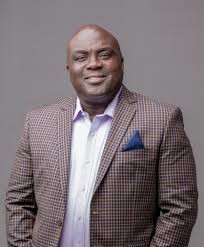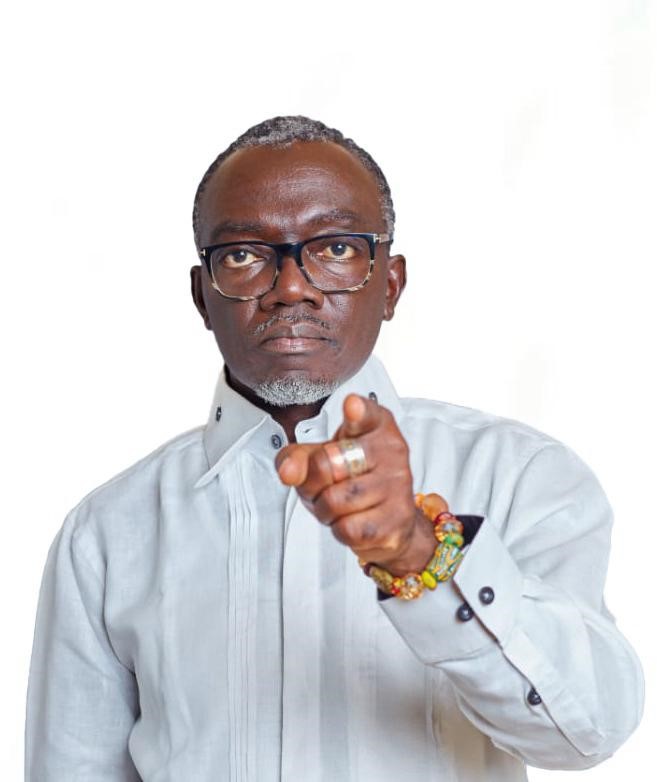…Without an effective Chief of Staff (COS) or Chief Operations Officer (COO) office, governance stalls; with it, institutions deliver and economies progress.
The leadership burden few can carry alone
In government, the President carries the ultimate responsibility for accountable and responsible governance. In business, this burden falls on the managing director or chief executive officer. Both positions symbolise authority and bear the weight of accountability.
Yet here lies the inconvenient truth: no president or CEO, no matter how talented, can govern or lead effectively without a steady hand managing the machinery behind them.
In the corridors of government, that hand is often the Chief of Staff. Too often dismissed as administrative support, the Chief of Staff is in reality the deputy CEO of governance and coordinator of policy.
They are the one who translates ambition into execution, vision into structure, and lofty resolutions into results. Ignoring this role weakens institutions, while investing in it strengthens the very foundation of leadership.
A hidden deputy in plain sight
In business, the deputy CEO, the COO, or increasingly, the chief supply chain management officer is a recognised apprentice to the top job. In government, the equivalent is the Chief of Staff, yet the role rarely gets its due.
The inconvenient truth is that presidents, prime ministers, and chief executives succeed with a Chief of Staff or trusted deputy or COO who enforces discipline, aligns interests, and preserves continuity. Without them, even gifted leaders stumble.

In Ghana, strong Chiefs of Staff aligned cabinet decisions with long-term policy. In South Africa, they helped cabinets avoid paralysis. Globally, Tim Cook moved from COO to Apple CEO with a deep focus on execution, and Mary Barra advanced from supply chain and operations to the top at General Motors. Empowered deputies not only steady leaders but often become leaders themselves.
The cabinet’s quiet COO
In practice, the Chief of Staff functions like a chief operations or supply chain officer. They organise policies, personalities, and competing demands so the presidency or prime minister’s office is not overwhelmed. Ultimate accountability resides with the President, but the Chief of Staff drives delivery, keeps policies aligned, and shields national strategy from distraction.
Many administrations fail not for lack of ideas but for lack of a strong Chief of Staff to enforce discipline and accountability. Nigeria shows both outcomes. When the office is empowered, the presidency runs efficiently. When it is politicised, delays and instability grow. Globally, Emmanuel Macron’s move from Chief of Staff to the presidency of France, and Joe Biden’s early staff work before reaching the White House, show how coordination and discipline can mature into national leadership.
The boardroom’s silent stabiliser
The same pattern appears in boardrooms. The CEO is accountable, but delivery often depends on a deputy CEO, a COO, or a Chief of Staff to coordinate execution. This figure ensures follow through, tracks risks, and quietly aligns directors and executives. In South African companies that endured turbulent markets, many had quiet stabilisers who kept strategy on course while leaders faced external pressure.

In Europe, Carlos Tavares, once the COO of Renault, went on to lead PSA and then Stellantis, using operational discipline to revive entire corporations. Boards that understand this principle secure their future; those that do not often watch strong strategies collapse. Governance falters when the deputy CEO, the COO, or the Chief of Staff is missing from the equation.
The apprenticeship too few recognise
The path from COO to CEO is widely respected in business. It is seen as natural succession planning. Yet the path from Chief of Staff to President is rarely acknowledged, despite the role being one of the most rigorous apprenticeships in leadership.
In the shadows, future leaders learn patience, discretion, diplomacy, and the art of persuasion. They see how to manage crises, balance competing egos, and turn broad visions into workable strategies.
The inconvenient truth is that many institutions lament the absence of future ready leaders. Yet, they fail to see that the Chief of Staff role, when taken seriously, is one of the best training grounds available. In Africa, where succession planning is often weak in both politics and business, this role could be deliberately used to nurture leaders who understand both vision and execution. Globally, Macron, Cook, Barra, and Tavares remind us that deputies are not simply placeholders but leaders in waiting.
The qualities that define the deputy ceo of governance
A good Chief of Staff is not made by title but by qualities. The role demands discipline to bring order to complexity, discretion to handle sensitive matters, and emotional intelligence to balance competing personalities. They must have the courage to speak truth to power, paired with the humility to remain in the background.
They must be organisers who turn strategy into plans, diplomats who mediate conflicts without drama, and strategists who shape outcomes while letting others take credit. These qualities cannot be improvised; they must be cultivated. The inconvenient truth is that loyalty alone does not make a competent Chief of Staff. Competence, integrity, and foresight are the true measures.
Lessons from business and politics
Business offers lessons on why succession planning matters. A COO who has shadowed a CEO for years is better prepared to step into the top role than an outsider parachuted in. They understand the culture, processes, and pressures. Similarly, in politics, Chiefs of Staff who have worked closely with Presidents and cabinets often emerge with sharper instincts than those who arrive at leadership through rhetoric alone.

They understand that governance is less about speeches and more about execution. In Ghana and Nigeria, several political figures who rose to prominence had earlier served in roles equivalent to Chief of Staff. In the United States, many senior political figures, including presidents, gained their grounding by first serving as staffers or close advisers. Institutions that neglect this apprenticeship risk instability when leadership changes.
Why succession matters
The inconvenient truth is that too many governments and corporations collapse into crisis not because leaders are weak, but because succession planning is absent. Presidents and CEOs are mortal, but institutions must endure. Continuity cannot be improvised in emergencies.
It must be cultivated deliberately. By treating the Chief of Staff as the COO or deputy CEO of governance, governments and corporations can build a pipeline of capable successors. This approach not only secures continuity but also builds confidence among citizens, investors, and stakeholders. Strong succession is not a luxury; it is the bedrock of stability.
The character behind the title
Not everyone can serve as Chief of Staff. The role demands humility combined with authority, loyalty balanced by independence, and resilience rooted in integrity. It requires individuals who can command respect without demanding attention, exercise influence without chasing applause, and serve faithfully while preparing others to succeed.
Boards and governments that choose Chiefs of Staff or COOs based on competence rather than convenience will find in them guardians of continuity, protectors of discipline, and quiet drivers of transformation. Those who choose poorly will find themselves weakened by instability, ego-driven conflict, and the erosion of public trust.
The deputy CEO of governance as a leadership nursery
As companies groom COOs and deputy CEOs for the top job, governments should invest in Chiefs of Staff. They learn governance at the highest level and prepare for succession. In practice, they are the deputy CEOs of governance and presidents and CEOs in waiting.
The inconvenient truth is that institutions cannot build tomorrow’s leaders while undervaluing the role that prepares them. Chosen and developed well, Chiefs of Staff are the quiet nursery for presidents, ministers, and chief executives.
Closing reflection
In government, the President carries ultimate responsibility. In business, that duty belongs to the chief executive. Neither can succeed without a deputy, COO, or Chief of Staff who brings order, foresight, and discipline. Leaders may inspire and strategise, but without a Chief of Staff, a Chief Operations Officer, or a deputy chief executive who owns cadence and follow-through, little is achieved.
These roles do more than deliver today. They train tomorrow’s leaders. In them, people learn to prioritise under pressure, align policy with budgets and timelines, settle conflict without noise, and convert strategy into outcomes that citizens and investors can see. Many credible national and corporate leaders were shaped by seasons in exactly these disciplines.
Treat the Chief of Staff, the Chief Operations Officer, and the deputy chief executive as professions of governance, accountability, and succession. Set a clear charter and authority to convene. Invest in selection, induction, mentoring, and continuous learning.
Measure delivery with simple public scorecards. Recognise excellence and make these offices a visible pipeline for future heads of state and chief executives. The Chief of Staff is the echo that carries leadership’s voice into action, the guardian of continuity, and the bridge between vision and delivery.
Give this role, and its sister roles in enterprise, the dignity, recognition, and investment they deserve, and institutions will gain reliability, citizens will gain confidence, and economies will make steady progress that outlasts any single term or tenure.
>>>the writer is a globally celebrated thought leader, Chartered Director, industrial engineer, supply chain management expert, and social entrepreneur known for his transformative contributions to industrialisation, procurement, and strategic sourcing in developing nations.
As Africa’s first Professor Extraordinaire for Supply Chain Governance and Industrialization, he has advised governments, businesses, and policymakers, driving sustainability and growth. During his tenure as Chairman of the Minerals Income Investment Fund (MIIF) and Labadi Beach Hotel, he led these institutions to global recognition for innovation and operational excellence. He is also the past chairman of the Public Procurement Authority.
A prolific author of over 90 publications, he is the creator of NyansaKasa (Words of Wisdom), a thought-provoking platform with over one million daily readers. Through his visionary leadership, Professor Boateng continues to inspire ethical governance, innovation, and youth empowerment, driving Africa toward a sustainable and inclusive future.










